Burkina Faso
The last three years have been tough for Fanta Charlotte Dabone, a mother of three from the conflict-battered West African country of Burkina Faso.
She fled her village after it was attacked by extremists, leaving her husband and her farm behind. Since then, she has been moving from place to place, struggling to pay rent and to buy enough food for her children, including a 2-year-old toddler.
But last month, she got to be a queen.
Every day for a week, together with dozens of other Burkinabe men and women who have been displaced by extremist violence, she swirled, danced and chanted for almost two hours in front of captivated audiences at Recreatrales, an international theatre festival held in Ouagadougou, the country's capital.
“When I’m on stage, I’m very happy, in the moment," she said.
"It’s when I have to go back home that these thoughts start coming back in my head.”
Burkina Faso, a landlocked nation of 23 million in Sahel, an arid strip of land south of the Sahara, used to be known for its bustling arts scene, including renowned film and theatre festivals, and its sophisticated craftsmanship.
But in recent years, the country has become the symbol of the security crisis in the region. It has been shaken by violence from extremist groups and the government forces fighting them, much of it spilling over the border with Mali, and by two ensuing military coups.
The military junta, which took power by force in 2022, failed to provide the stability it promised.
Instead, the situation deteriorated: According to conservative estimates, more than 60% of the country is now outside of government control, more than 2 million people have lost their homes and almost 6.5 million need humanitarian aid to survive.
But against all odds, last month the Bougsemtenga district in the capital turned into a festival grounds to host Recreatrales for the 13th time.
Bougsemtenga derives its name from “bougtenga,” which means “happiness district” in Moore, one of the local languages.
True to its origins, this year its streets were transformed into a dreamy universe, resembling a crossover between a traditional village festival and “Alice in Wonderland."
More than 150 African and European artists performed and over 4,500 theatre lovers were able to escape the country's grim reality, if just for a little while.
Claude Ilboudo, 30, was born in the neighbourhood, and has performed in the opening ceremonies of Recreatrales as a dancer since its first edition.
He used to work as a glazier, dancing was just his pastime.
But Ilboudo's life took a turn when five years ago he severely injured his right hand in an accident at work and could no longer do his job.
It was then that Ilboudo discovered a passion for theatre and started working for the Recreatrales association.
“Recreatrales for me represents hope. It’s hope for me, personally. And hope for the neighbourhood that hosts the festival,” he said.
Aristide Tarnagda, the festival’s artistic director, said he was convinced that regardless of the insecurity engulfing the country, the festival had to take place as planned.
Theatre is an affirmation of “the primacy of life over death,” Tarnagda said.
He added that getting together to perform and watch theatrical productions is a form of resistance against adversity and violence. This is why this year's theme was "Turning the face to the sun.”




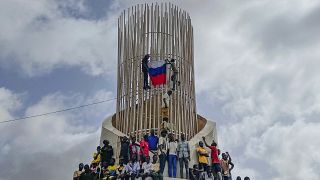

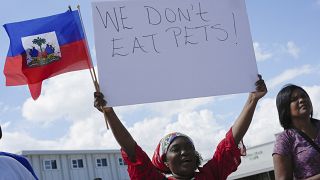
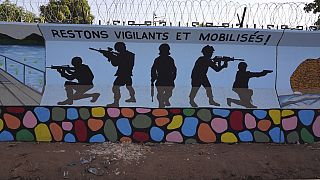
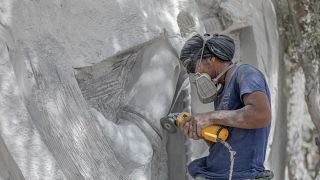
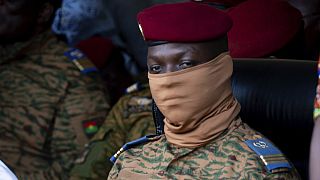
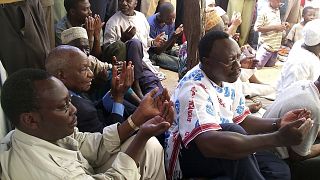
01:19
MSF suspends operations in Haiti amid fresh wave of violence
01:42
Niger: Conference in solidarity with the Alliance of Sahel States
01:17
Newly appointed Haitian prime minister swears in cabinet of ministers
01:39
Panic, displacement in Haiti's capital as gangs step up attacks
00:59
Violence continues to escalate in Haiti
01:03
Senegal’s legislative elections: Prime minister calls for retaliation against “attacks” on supporter